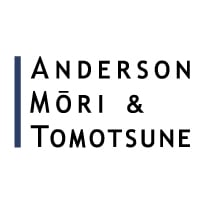

Group legal and compliance director | LVMH Moët Hennessy-Louis Vuitton Japan







Kazunari Fukuda
Group legal and compliance director | LVMH Moët Hennessy-Louis Vuitton Japan
What are the most significant cases or transactions that you have been involved in over the past year?
Over the past year as group legal and compliance director for LVMH Moët Hennessy Louis Vuitton Japan, my team and I have been engaged in a wide array of legal activities that are critical to the strategic growth and operational integrity of our company.
We have been heavily involved in negotiating and structuring various commercial agreements that underpin our retail operations. This includes lease agreements and construction agreements for new flagship store locations as well as renewals for existing spaces — tasks that require a nuanced understanding of real estate law within the context of Japanese market dynamics.
Another notable area has been converting our legal entity from K.K. to G.K. to simplify our decision-making process, and reduce our administrative work relating to maintaining a K.K.
Lastly, we have provided ongoing counsel on employment law matters. Our focus has been on maintaining fair labour practices while adapting to new modes of working.
While these examples represent a broad overview rather than specific cases or transactions due to confidentiality constraints, they reflect the dynamic legal challenges faced by LVMH Moët Hennessy Louis Vuitton Japan over the past year.
Based on your experience, what is the key to collaborating successfully with business partners?
Collaborating successfully with business partners is a cornerstone of any successful enterprise. Here are several keys to effective collaboration: (i)understanding the business objectives — as the legal arm of the company, it is crucial to thoroughly understand the business goals and strategies of our partners. This ensures that legal solutions are tailored to support and enhance these objectives rather than hinder them; (ii) building relationships on trust — establishing relationships built on trust is fundamental. This means being transparent, delivering on promises, and maintaining open lines of communication. When business partners trust the legal team’s expertise and dependability, they are more likely to seek counsel proactively; (iii) aligning risk tolerance — different stakeholders may have varying levels of risk tolerance. Understanding where our business partners stand on this spectrum allows us to provide advice that aligns with their comfort level while still protecting the company’s interests.
How do you motivate and manage the other members of your legal team well?
By promoting a culture of collaboration, I encourage team members at holding and brands to share their expertise and work together on projects. This not only helps in building a sense of camaraderie but also enhances our collective knowledge base. Regular group team meetings are set up to ensure everyone has a voice and feels valued.
Clear communication regarding expectations, objectives, and feedback is paramount to ensuring that the team operates cohesively.
Lastly, while oversight is necessary, micromanagement can be detrimental to motivation. I trust my team members with autonomy over their tasks where appropriate which empowers them to take ownership of their work and fosters an environment where they can innovate and exercise their decision-making skills.
Group legal and compliance director | LVMH Moët Hennessy-Louis Vuitton
Group legal and compliance director | LVMH Moët Hennessy-Louis Vuitton Japan